Learning About Feeding Your Toddler
By age 2 or 3, your toddler may prefer certain foods and dislike others. Toddlers may have a lot of variation in how hungry they are each day. Giving your toddler new foods to try can encourage a love of variety, texture, and taste. Exploring new foods is a skill that takes time and practice to learn.
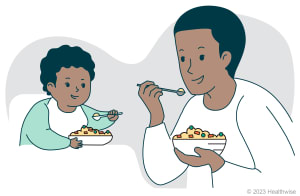
Toddlers may need many tries before accepting a new food. Keep offering them new foods—even if they don't like them the first time.
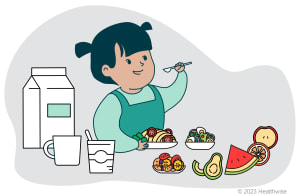
Make healthy foods available to your toddler. Your toddler can decide how much to eat.
Ways to help your toddler with healthy eating
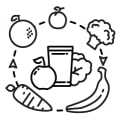
Serve healthy foods and drinks.
- Offer lots of vegetables and fruits every day.
- Provide meals and snacks with a variety of whole grain foods, protein foods, and vegetables and fruit.
- Offer water when your toddler is thirsty.
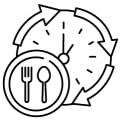
Prepare for meals and snacks.
- Have a snack and meal routine. Try 3 meals and 2 or 3 snacks a day.
- Trust your toddler's eating. It's okay if they eat a lot at one meal and not much at the next.
- Let your toddler help in the kitchen as soon as they show interest.
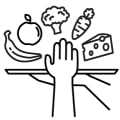
Help your toddler try new foods.
- Offer foods in small portions - 1 or 2 spoonfuls to start. Let them serve themselves.
- Eat with your toddler. Offer them the same healthy foods you eat.
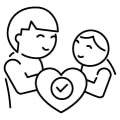
Practice healthy eating habits together.
- Be a role model. Let your toddler see you eat healthy foods.
- Try not to use food as a reward.
Where can you learn more?
Go to https://www.healthwise.net/patientEd
Enter V931 in the search box to learn more about "Learning About Feeding Your Toddler".
Adaptation Date: 06/12/2024
Adapted By: Alberta Health Services
Adaptation Reviewed By: Alberta Health Services
